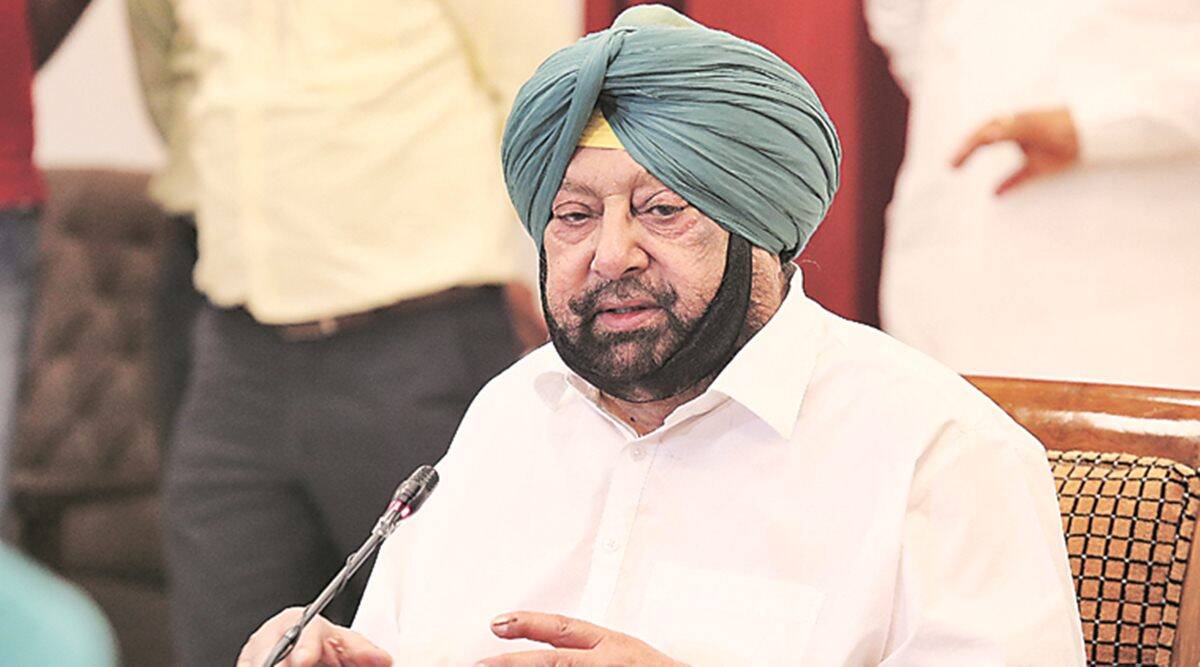 CM Amarinder Singh Saturday said that Power Purchase Agreements signed by the erstwhile SAD-BJP government were already under review and said that his government would soon announce its legal strategy to counter the PPAs. (File)
CM Amarinder Singh Saturday said that Power Purchase Agreements signed by the erstwhile SAD-BJP government were already under review and said that his government would soon announce its legal strategy to counter the PPAs. (File) Chief Minister Amarinder Singh Saturday said that Power Purchase Agreements (PPAs) signed by the erstwhile SAD-BJP government were already under review and said that his government would soon announce its legal strategy to counter the PPAs, which had put an unnecessary financial burden on the state.
The CM, who chaired a meeting to review the power situation in the state, said later that a carefully charted legal course of action was being formulated to save Punjab from further financial losses due to the ill-conceived PPAs signed by the Badals during their rule.
Of the 139 PPAs signed during the SAD-BJP government, 17 were enough to cater to the state’s full power demand, he pointed out, adding that the remaining 122 for 1,314 MWs of expensive power were signed, putting an unnecessary financial burden on the state.
Even as he appealed to the people to use power judiciously and cooperate with the government in overcoming the temporary shortage of power, the CM said against the supply of 13,500 MW, the demand last week touched an unprecedented 16,000 MW. Immediately, PSPCL started purchasing 7,400 MW of power from outside the state, he said, adding that this was 1,000 MW more than what was purchased last year. Had the quantum of purchase not been promptly enhanced, the state would have faced an additional deficit of 1,000 MW of power, aggravating the crisis, he pointed out.
The CM said the present crisis was the result of failure of one unit of the Talwandi Sabo Power Plant, generating 660 MW of power. While a notice had already been issued to the plant by PSPCL for imposing a heavy penalty, the state government had, on its part, taken strong measures to address the power shortage, he added. These measures, he said, included three weekly days off for the industry, including rolling mills and induction furnaces, from July 1 to 7.
Only essential services and continuous process industries have been exempted from these regulations, he added.
Further, the state government offices have also been directed to function from 8 am to 2 pm till July 10, with use of air conditioners prohibited in these offices.
Asserting his government’s commitment to ensuring that the situation is quickly eased, the CM said the power distribution system in the state had improved over the past four years. He said that 2 lakh new distribution transformers have been installed, taking the total figure to 11.50 lakh. Transformers have also been installed at the sub-stations to keep the supply stable, he added.
Further, to improve the transmission system, he said that 17,000 kms of 11 kV and 1,372 kms of 66 KV transmission lines have been added. Seven 220 KV substations and thirty-four 66 KV sub-stations have been commissioned, enhancing the capacity by 8,423 MVA. An additional 54 new 66 KV substations are expected to be completed by November 30. In addition, three 33 kV sub-stations have been upgraded to 66 kV and two 66 kV sub-stations are being upgraded to 220 kV, he said.
Meanwhile, a spokesperson of PSPCL said that following the measures taken by the government, eight hours of power is being supplied to all the agriculture consumers and there are also no scheduled power cuts on domestic, commercial, small and medium supply industrial consumers in the state.
On the availability of power from the Power Exchange, the spokesperson said the same was highly unpredictable, with even the rates varying, according to the time of the day, from Rs 2.32/unit to Rs 10.00/ unit.
On the closure of Bathinda and Ropar Thermal Plants, the spokesperson said that the unit cost of power generated by these plants was high since these plants were of old design and required more manpower for operation. The maintenance cost of these plants was also very high, he added.
The government has been under fire from all quarters for unprecedented power crisis in the state. The government was caught ill-prepared as the demand reached an all-time high at 14,500 MW.
- The Indian Express website has been rated GREEN for its credibility and trustworthiness by Newsguard, a global service that rates news sources for their journalistic standards.

